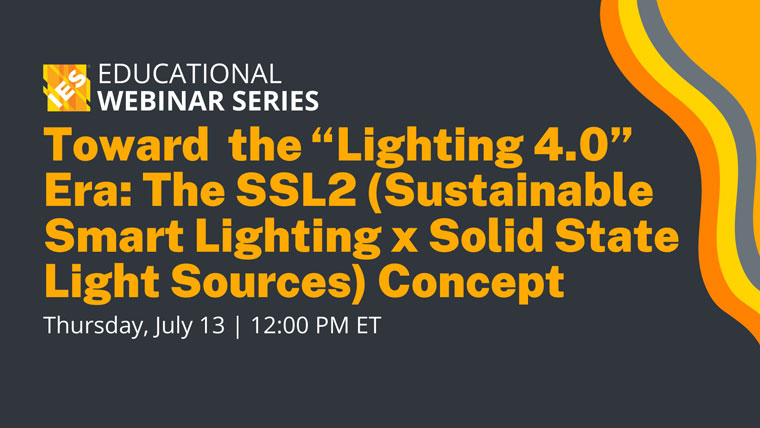
(IES) During the last decade, SSLs-Solid-State Lighting based on components like LEDs, OLEDs and LDs, challenges conventional technologies. In particular, LED has turned into a game changer beating the conventional technologies in all aspects. It is therefore anticipated that in short term, all of electric lighting will be based on SSLs. Today, SSLs proceed to the projected conclusion: replacing all legacy technologies, this is a major change in the lighting market that is considered as a revolution.
Artificial light absorbs 13-14% of the world’s electricity annual production. Today, we are witnessing a transition from the conventional “analogue” lighting technologies towards “digital” lighting. Smart lighting will become the backbone for smart cities and homes. Smart lighting concept leads towards the heart of the “Internet of Things”. Further, to serve society as effectively as we could, Industry has coined a new term “human-centric lighting” (HCL) to direct its primary efforts in meeting human needs. The objective is switching to smart human-centric lighting driven by both “efficiency” and “quality of light”. But this forecast could be severely affected by the “rebound effect” described by Jevons in mid-19th century. Switching to the SSL2 concept, which consists of sustainable smart lighting systems based on solid-state lighting devices, might be one way to stop that harmful effect. Smart, human-centered lighting that incorporates light quality is driven by “appliance efficiency.” This merely suggests that the “Right Light” should be provided by next-generation lighting systems with the best levels of quality and efficiency when and where it is needed.
This webinar will highlight all the above-mentioned issues and will focus on the future of the lighting systems and their contributions to the sustainable development of smart cities.
Presenter: Georges Zissis
Prof. Georges ZISSIS, PhD, SMIEE, Vice-Rector Toulouse 3 University (2020-23). Born in Athens in 1964, has graduated in 1986 from Physics department of University of Crete in general physics. He got his MSc and PhD in Plasma Science in 1987 and 1990 from Toulouse 3 University (France). He is today full Professor in Toulouse 3 University (France). His primary area of work is in the field of Light Systems Science and Technology. He is especially interested in the sustainable smart lighting systems; system and metrology issues for solid-state lighting systems; standardization and quality issues for light sources; impact of lighting to energy, environment, quality of life, health and security; illumination and lighting. He is director of “Light & Matter” research group of LAPLACE that enrols 20 researchers. He won in December 2006 the 1st Award of the International Electrotechnical Committee (IEC) Centenary Challenge for his work on mesopic vision standardization for urban lighting systems (in conjunction with IEEE, IET and the Observer). In 2009, he won the Energy Globe Award for France and he got the Fresnel Medal from the French Illuminating Engineering Society. He was President IEEE Industrial Application Society (2019-20), and President of the Power Electronics, Electronics, Optoelectronics and System section of the French National Council of Universities (2014-19). He initiated and he chairs the IEEE Smart Lighting Initiative under IEEE Future Directions umbrella.